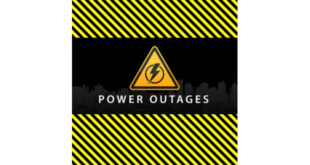In 1978, Californians passed Proposition 13 to cap property tax increases at two percent per year. At the time, and as we saw last decade, property values were increasing at such a fast pace, that many people had difficulty keeping up with the doubling and tripling of their property taxes. Seniors on fixed incomes were sometimes forced to sell their homes because the taxation levels exceeded their ability to pay the taxes.
This is a short synopsis for our millennial friends.
Even with Proposition 13, California has the highest property taxes (by amount paid, not rate) west of Illinois. Add to that the highest middle class income tax rates and sales taxes in the country and we can easily see that California is a very expensive state to live in based on taxes alone.
The price tag for government is not a simple distraction to be brushed aside. It is a factor that impacts every aspect of the society we live in. It affects every corner of our lives, from the quality of education our children receive to the price we pay for groceries. Everything is priced higher because of the unnatural costs and edicts of the government we have built. The question arises as to what we actually get in California for the expense of the government we pay for?
California, for all of its expensive government, has some of the worst outcomes for infrastructure and education in the United States. Our road system is rated second worst in the nation. We rank behind states that suffer from poor weather conditions of ice and snow that typically create havoc on asphalt and concrete. Apparently, our state cannot even handle a bridge retrofit as the chaos surrounding the Golden Gate Bridge proves.
Our education system is ranked 48th based on education attainment even though California per pupil spending places it in the middle of 49 other states and total state spending on education far exceeds the rest of the nation.
It wasn’t always so. California was a leader in education as recently as the 1970’s. We had affordable four year Universities for any Californian who qualified. Our roads and infrastructure were the envy of the nation and enabled the tremendous economic growth that continued to the end of the last century.
Californian’s need to ask ourselves what our taxes actually pay for. We have the largest, most generous welfare system in the country. California hosts 30 percent of the nation’s welfare cases, even though we make up only 10 percent of the population. Our unemployment rate remains high.
The obvious answer is we don’t get much, which begs the question: Why should we continue to pay high taxes for services we aren’t receiving?
Government, like any organization that does not have competition, rarely evolves or changes. The only accountability comes from the people that elect our representatives and in California through the initiative process outlined in our State Constitution.
While a number of special interests in the State are readying ballot measures to extend current temporary taxes and pass new ones, it is clearly time for Californian’s to stand up and pass tax reforms for all Californian’s who pay taxes. If government will not produce sufficient results with the high taxes we Californians pay, then it is time for us to actually pay for the services we get and lower our overall tax burdens.
The only way to reform Sacramento and local government is to force them to live within their means. An across the board sales tax reduction or income tax cap would allow Californians to keep more of the money we earn. It would also send a proper message to our government that we are going to hold them accountable for how they spend the money we provide to it.
It only takes 600,000 signatures. When do we start!
 IE Business Daily Business news for the Inland Empire.
IE Business Daily Business news for the Inland Empire.


